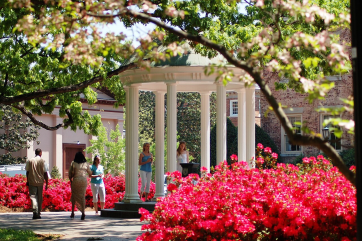Trump Meets With Princeton Scientist Who Believes Climate Change Is Good
By Emily MarksPresident-elect Donald Trump has met with Princeton physicist William Happer. The professor is known for being vocal about the pros of climate change instead of focusing on its cons.
The Washington Post reported that Trump and Happer met on Friday. This raised a lot of concerns since the Princeton professor of physics is notorious for his claim that the benefits brought about by climate change outweigh the disadvantages.
The Hill journalist Timothy Cama tweeted that William Happer was spotted at Trump Tower on Jan. 13. There are speculations that the meeting was to discuss about a government post for the Princeton physicist in the energy or science departments.
In an interview with CNBC last 2014, via the Huffington Post, Happer likened "the demonization of carbon dioxide" to the "demonization of the poor Jews under Hitler." He clarified that CO2 actually has a lot of benefits that it can give to the world.
He has argued that carbon dioxide brings increased agricultural yields which, according to him, outweigh any harm that it comes along with it. He also explained that the increase of atmospheric carbon dioxide would cause just 0.5 or 1.5 degrees Celsius of planetary warming, which has been debunked by the United Nations' Intergovernmental Panel on Climate Change.
Gizmodo added that the Princeton professor has not denied climate change. It's just that he has a radically different view of it as compared to the rest of the scientific community. Recently, the House Science Committee faced backlash for retweeting a post about a misleading and unscientific article that denied climate-change. The committee has 38 members. All of whom are in-charge of all energy, environmental, marine, civil aviation and astronautics research and development.
This comes after Donald Trump continues to appoint climate-change deniers to office. He has previously tweeted that "the concept of global warming was created by and for the Chinese in order to make U.S. manufacturing non-competitive."







